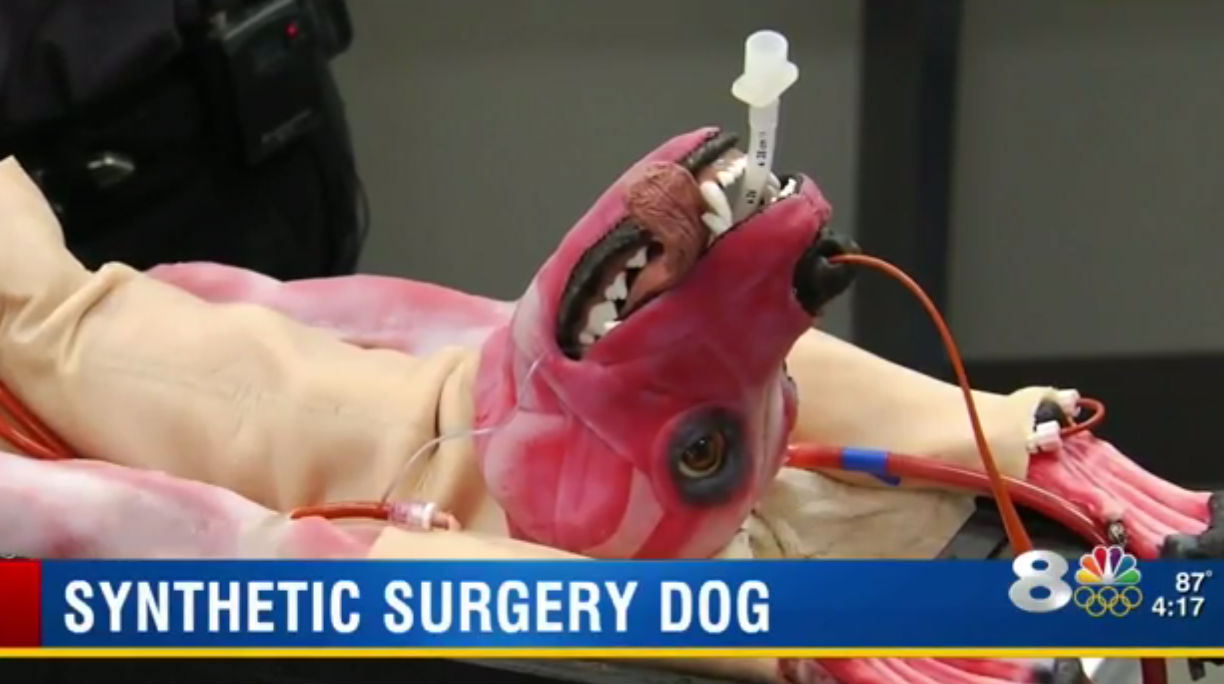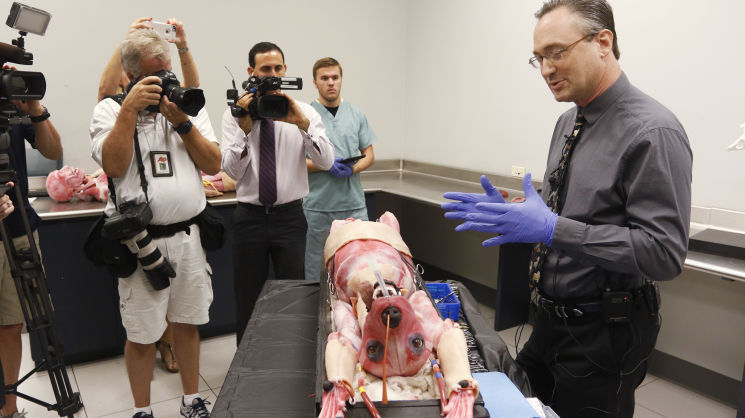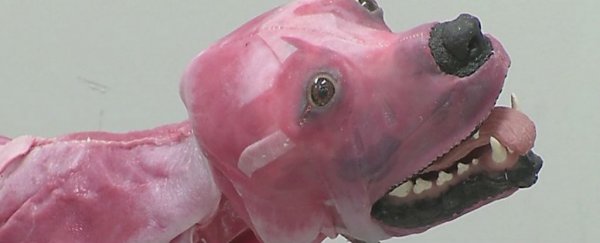I don't want to ruin your day or anything, but not that long ago, veterinarians in training would sometimes have to practice on live dogs and cats from shelters that were anaesthetised for the procedure, and euthanised when was done.
The practice was called terminal surgery, and while most academic institutions have thankfully phased it out over the past decade, many are still looking for a viable alternative to give students the hands-on experience they need that's more realistic than poking around in a cadaver.
"I do feel I carry that sin. I still feel guilty about it," veterinarian David Danielson, who operated on live dogs though vet school to learn everything from neutering to brain surgery, told Erin Maloney at Bay News.
Danielson is vice president of veterinary technology at SynDaver Lab, a Tampa-based biotech company that also produces synthetic human tissues and body parts for clinical training and surgical simulation.
They're now working on an animal version for vets that's designed to breathe, bleed, and die, and different iterations will require students to address various common ailments, including cutting out tumours or extracting socks from the stomach (labrador owners know what I'm talking about).
Students can even learn how to perform brain surgery on these synthetic dogs, and if they screw up, they're going to have to figure out how to save the situation before their fake patient bleeds out like a real one.
"The canine utilises SynDaver's patented SynTissue, which mimics living tissue, includes a full list of functioning bodily systems, and has the capability to simulate customised diseases, illnesses and medical complications," the company explains, adding that it has a heartbeat and circulatory system, and bleeds when cuts are made.
As you can see in the pics above and below, this thing is complete and utter nightmare material, but if it helps vet students, I guess we'll have to live with these sad-looking monsters.
 NBC News
NBC News
The company now wants to donate 20 of these US$28,500 synthetic dogs to a number of accredited veterinary colleges around the world, with the idea that they would be obtainable for free, and then SynDaver would provide an upkeep service for a fee.
Having tried (and failed, for undisclosed reasons) to finance this via the TV show Shark Tank, the company has taken to crowd-funding the endeavour. But if you're interested in donating, you should be aware that they're peddling the product as a replacement for terminal surgery, saying it could save "thousands of lives" - and that's stretching the truth quite a bit.
"The campaign will begin to end a process known as terminal surgery labs," says SynDaver, ignoring the fact terminal surgery has already been all but phased out across Australia and the States several years ago.
The product might have been inspired by practices of the past, but Daniel Fletcher, associate professor of emergency and critical care at Cornell University College of Veterinary Medicine, told Alli Knothe from the Tampa Bay Times that SynDaver is misleading people by claiming terminal surgeries are still widespread in veterinary programs.
"I'm honestly not sure if any veterinary schools still have terminal dog surgeries as part of the core curriculum, but I know for certain that many of the schools I've been involved with stopped doing these procedures years ago," he said.
If you can get past that fairly dodgy behaviour, the actual product does have its merits.
If the vet schools that end up using these synthetic dogs agree that they're sufficiently lifelike, it will give students the opportunity to get hands-on experience performing high-pressure surgical procedures that they're likely going to be very nervous about trying on someone's pet for the first time.
The University of Florida's College of Veterinary Medicine is currently testing out one of their synthetic dogs.
What will be interesting to see in the coming years is if technologies like this could make a difference for animal testing in general. While it's no longer the problem SynDaver makes it out to be in the veterinary field, animal testing is the foundation of medical research the world over, and we just can't seem to shake our reliance on mouse and rat models that aren't even that effective.
With advances in lifelike body systems like this synthetic dog, various 'organs on a chip', new mathematical models, and 3D-printed brain replicas, seeing positive results in trials, the 'real thing' might become obsolete in the not-too-distant future of medical training and testing.
 SynDaver
SynDaver
